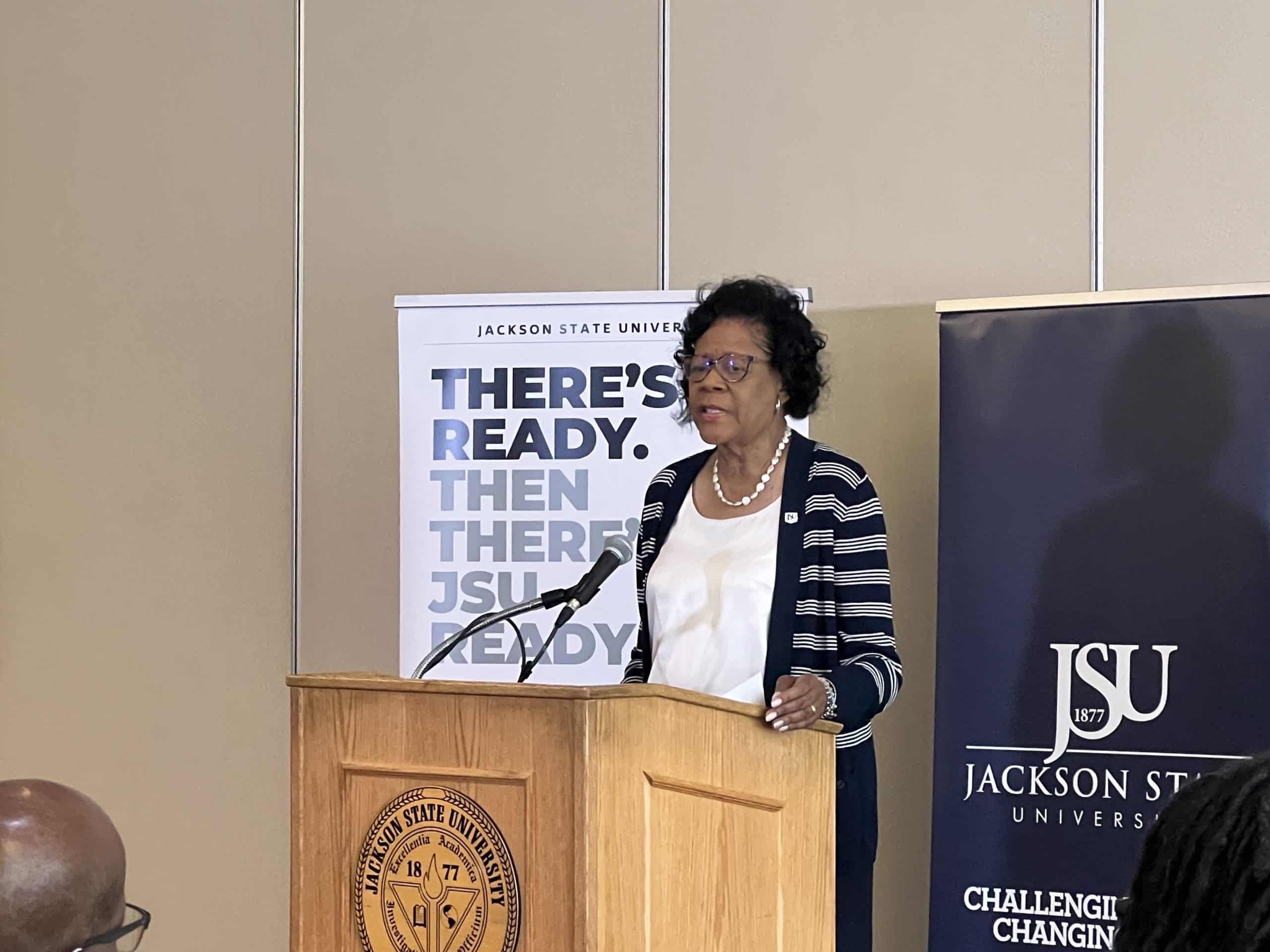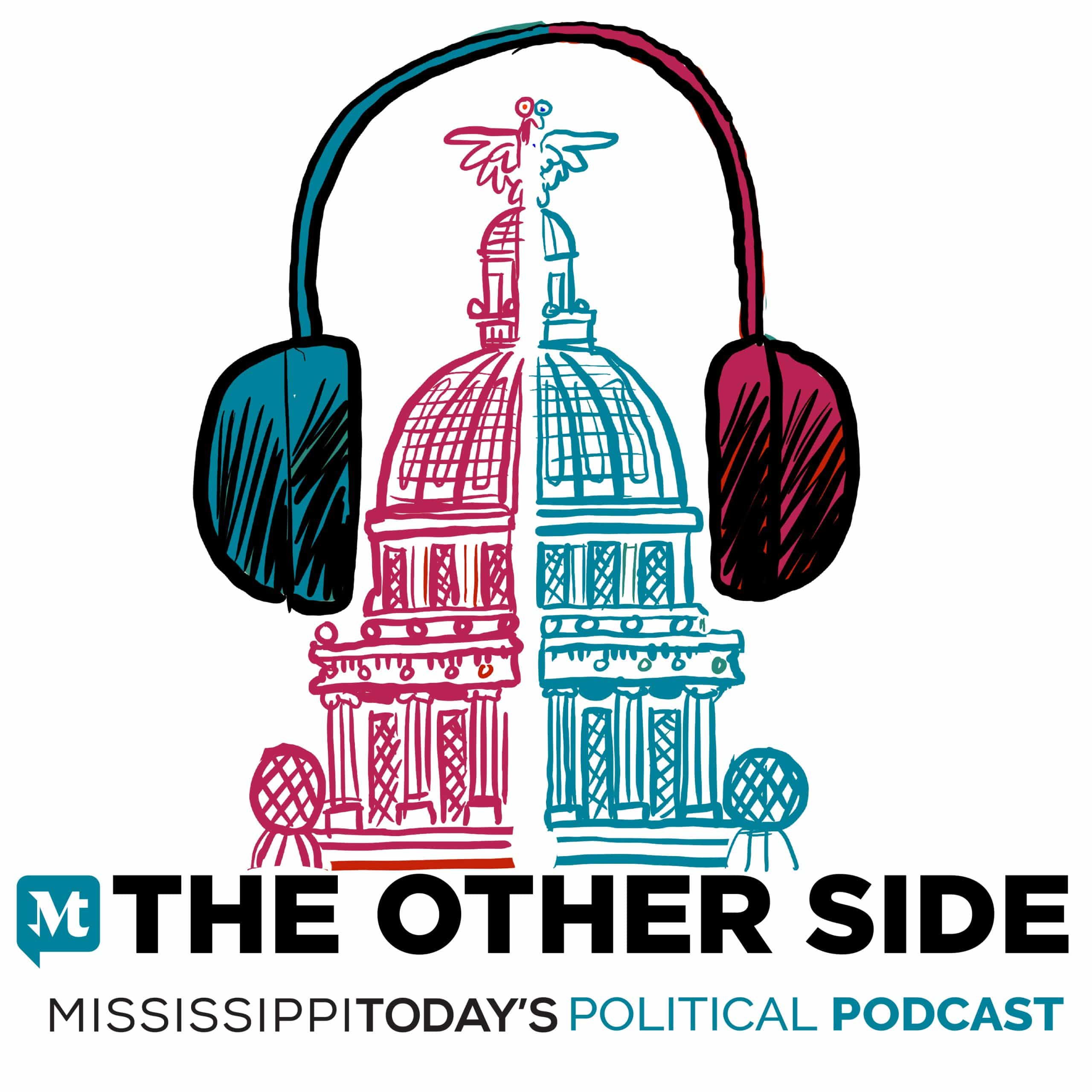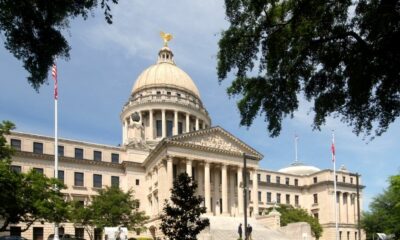Mississippi Today
Only JSU alum on IHL board votes against allowing acting president to apply for permanent role

A slim majority of the governing board for Mississippi's eight public universities voted to allow Elayne Hayes-Anthony, Jackson State University's temporary acting president, to apply for the permanent role.
According to executive session minutes released Wednesday, seven trustees voted for the motion and five voted against, including Dr. Steven Cunningham, the only Jackson State alumnus on the board and the trustee who is leading the university's presidential search.
Cunningham, a Hattiesburg-based radiologist, told Mississippi Today that he didn't want to dissuade outside candidates from applying for the role. In recent years, the IHL board has tended to hire interim presidents instead of conducting a full-blown national search at the state's universities.
“I just didn't want anybody to be scared off,” Cunningham told Mississippi Today.
The vacancy at Jackson State, a historically Black university and the largest university in Mississippi's capital city, comes after Thomas Hudson, who had been interim before getting the permanent position, became the third president in a row to resign earlier this year.
Though Hayes-Anthony said she was interested in the permanent post shortly after the board appointed her to the temporary position in March, trustees did not vote to allow her to apply until June, the minutes show. She could not be reached for comment by press time.
If the board hires Hayes-Anthony, the Jackson native and former chair of the university's Department of Journalism and Media Studies would be the third consecutive internal hire within the state's universities system. The tenures of the past two presidents at Jackson State — William Bynum, Jr., who was hired from Mississippi Valley State University, and Hudson — both ended in resignation.
Cunningham said he was voting for a thorough national search.
“It all comes down to the process,” he said. “As long as the process is an even process.”
Earlier this week, the Jackson Advocate's Ivory Phillips reported that IHL Commissioner Al Rankins said the presidential search committee is working to make a hire by the end of the calendar year. A high-profile alumnus and a previous applicant that was highly rated are among the current applicants.
Cunningham told Mississippi Today that the search committee has received about 45 applications and is expecting more by the Aug. 21 deadline.
At a March press conference, Hayes-Anthony said she would be in the role as long as she is needed.
She also acknowledged the board has imposed various stipulations on her role. She said she could hire and fire people in coordination with Rankins. An IHL spokesperson said the board has not placed more restrictions on Hayes-Anthony than any other temporary or interim president in the system.
Last month, Hayes-Anthony wrote in a campus-wide email that Brandi Newkirk-Turner, the associate provost, had been reassigned but would remain as a faculty member in the Department of Communicative Disorders. Newkirk-Turner was among the administrators who received a no-confidence vote from the faculty senate earlier this year.
Hours later, Hayes-Anthony sent another email that Newkirk-Turner's reassignment had been rescinded and she would remain associate provost.
READ MORE: ‘As long as I'm needed': JSU acting president has no timetable from IHL for appointment
This article first appeared on Mississippi Today and is republished here under a Creative Commons license.
Mississippi Today
Podcast: The controversial day that Robert Kennedy came to the University of Mississippi

Retired U.S. Bankruptcy Judge Edward Ellington talks with Mississippi Today's Bobby Harrison and Geoff Pender about former U.S. Attorney General Robert Kennedy's speech at the University of Mississippi less than four years after the riots that occurred after the integration of the school. Ellington, who at the time headed the Ole Miss Speaker's Bureau as a law school student, recalls the controversy leading up to the speech.
This article first appeared on Mississippi Today and is republished here under a Creative Commons license.
Did you miss our previous article…
https://www.biloxinewsevents.com/?p=359978
Mississippi Today
On this day in 1961
MAY 20, 1961

A white mob of more than 300, including Klansmen, attacked Freedom Riders at the Greyhound Bus Station in Montgomery, Alabama. Future Congressman John Lewis was among them.
“An angry mob came out of nowhere, hundreds of people, with bricks and balls, chains,” Lewis recalled.
After beating on the riders, the mob turned on reporters and then Justice Department official John Seigenthaler, who was beaten unconscious and left in the street after helping two riders.
“Then they turned on my colleagues and started beating us and beat us so severely, we were left bloodied and unconscious in the streets of Montgomery,” Lewis recalled.
As the mob headed his way, Freedom Rider James Zwerg said he asked for God to be with him, and “I felt absolutely surrounded by love. I knew that whether I lived or died, I was going to be OK.”
The mob beat him so badly that his suit was soaked in blood.
“There was nothing particularly heroic in what I did,” he said. “If you want to talk about heroism, consider the Black man who probably saved my life. This man in coveralls, just off of work, happened to walk by as my beating was going on and said ‘Stop beating that kid. If you want to beat someone, beat me.' And they did. He was still unconscious when I left the hospital.”
To quell the violence, Attorney General Robert Kennedy sent in 450 federal marshals.
This article first appeared on Mississippi Today and is republished here under a Creative Commons license.
Mississippi Today
2024 Mississippi legislative session not good for private school voucher supporters
Despite a recent Mississippi Supreme Court ruling allowing $10 million in public money to be spent on private schools, 2024 has not been a good year for those supporting school vouchers.
School-choice supporters were hopeful during the 2024 legislative session, with new House Speaker Jason White at times indicating support for vouchers.
But the Legislature, which recently completed its session, did not pass any new voucher bills. In fact, it placed tighter restrictions on some of the limited laws the state has in place allowing public money to be spent on private schools.
Notably, the Legislature passed a bill that provides significantly more oversight of a program that provides a limited number of scholarships or vouchers for special-needs children to attend private schools.
Going forward, thanks to the new law, to receive the vouchers a parent must certify that their child will be attending a private school that offers the special needs educational services that will help the child. And the school must report information on the academic progress of the child receiving the funds.
Also, efforts to expand another state program that provides tax credits for the benefit of private schools was defeated. Legislation that would have expanded the tax credits offered by the Children's Promise Act from $8 million a year to $24 million to benefit private schools was defeated. Private schools are supposed to educate low income students and students with special needs to receive the benefit of the tax credits. The legislation expanding the Children's Promise Act was defeated after it was reported that no state agency knew how many students who fit into the categories of poverty and other specific needs were being educated in the schools receiving funds through the tax credits.
Interestingly, the Legislature did not expand the Children's Promise Act but also did not place more oversight on the private schools receiving the tax credit funds.
The bright spot for those supporting vouchers was the early May state Supreme Court ruling. But, in reality, the Supreme Court ruling was not as good for supporters of vouchers as it might appear on the surface.
The Supreme Court did not say in the ruling whether school vouchers are constitutional. Instead, the state's highest court ruled that the group that brought the lawsuit – Parents for Public Schools – did not have standing to pursue the legal action.
The Supreme Court justices did not give any indication that they were ready to say they were going to ignore the Mississippi Constitution's plain language that prohibits public funds from being provided “to any school that at the time of receiving such appropriation is not conducted as a free school.”
In addition to finding Parents for Public Schools did not have standing to bring the lawsuit, the court said another key reason for its ruling was the fact that the funds the private schools were receiving were federal, not state funds. The public funds at the center of the lawsuit were federal COVID-19 relief dollars.
Right or wrong, The court appeared to make a distinction between federal money and state general funds. And in reality, the circumstances are unique in that seldom does the state receive federal money with so few strings attached that it can be awarded to private schools.
The majority opinion written by Northern District Supreme Justice Robert Chamberlin and joined by six justices states, “These specific federal funds were never earmarked by either the federal government or the state for educational purposes, have not been commingled with state education funds, are not for educational purposes and therefore cannot be said to have harmed PPS (Parents for Public Schools) by taking finite government educational funding away from public schools.”
And Southern District Supreme Court Justice Dawn Beam, who joined the majority opinion, wrote separately “ to reiterate that we are not ruling on state funds but American Rescue Plan Act (ARPA) funds … The ARPA funds were given to the state to be used in four possible ways, three of which were directly related to the COVID -19 health emergency and one of which was to make necessary investments in water, sewer or broadband infrastructure.”
Granted, many public school advocates lamented the decision, pointing out that federal funds are indeed public or taxpayer money and those federal funds could have been used to help struggling public schools.
Two justices – James Kitchens and Leslie King, both of the Central District, agreed with that argument.
But, importantly, a decidedly conservative-leaning Mississippi Supreme Court stopped far short – at least for the time being – of circumventing state constitutional language that plainly states that public funds are not to go to private schools.
And a decidedly conservative Mississippi Legislature chose not to expand voucher programs during the 2024 session.
This article first appeared on Mississippi Today and is republished here under a Creative Commons license.
-
Our Mississippi Home6 days ago
Beat the Heat with Mississippi’s Best Waterparks
-
SuperTalk FM3 days ago
State auditor cracking down on Mississippians receiving unemployment benefits
-
Our Mississippi Home7 days ago
Charlie’s U-Pik: Opening Soon for the Summer Season
-
Mississippi News Video5 days ago
Jackson has a gang problem
-
Kaiser Health News6 days ago
Medicaid ‘Unwinding’ Decried as Biased Against Disabled People
-
Local News2 days ago
Family files lawsuit after teen’s suicide in Harrison County Jail
-
Mississippi Today4 days ago
On this day in 1950
-
228Sports5 days ago
George County Pours Runs In 6A South State Title Victory At PRC









































